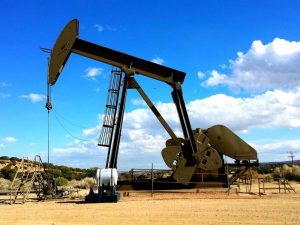A group of West Virginia landowners filed a proposed class action in July in hopes of shining a spotlight on the common industry practice of large shale companies offloading their legacy oil and gas wells to smaller organizations. Alabama-based Diversified Energy Co. has quickly become the smaller organization of choice in what some call a shell game, leaving Diversified with the largest portfolio of old, shallow, non-producing oil and gas wells in the United States.
Nonprofit anti-fossil-fuel legal group Appalachian Mountain Advocates represents the West Virginia landowners. The suit focuses on one 2018 deal and one 2020 deal between Pittsburgh-based EQT Corp. and Diversified. In those two deals, natural gas firm EQT sold to Diversified hundreds of West Virginia wells—and thereby transferred to Diversified the liability for well remediation.
The case that was filed in the U.S. District Court for the Northern District of West Virginia labels the two deals “fraudulent transfers” under West Virginia’s uniform fraudulent transfer act. The plaintiffs want both deals voided and the liability for plugging abandoned wells returned to EQT, which has more means to complete nonproducing well remediation as required by law.
In the words of the complaint, EQT knew “Diversified could only be profitable by largely ignoring the millions of dollars of asset retirement obligations—namely, plugging and decommissioning costs—that EQT bragged to its shareholders about shedding.” As of July 26, neither Diversified nor EQT had filed a response to the complaint.
According to Pittsburgh Post-Gazette reporter Anya Litvak, Diversified “has the largest collection of unplugged old wells, and its business plan relies on not having to plug most of them in the next few decades.” State regulators in Pennsylvania, Ohio, West Virginia, and Kentucky have all signed agreements with Diversified during the past few years, requiring the company to plug a minimum of 80 wells per year across the four states. Regulators seek to strike a balance between requiring well remediation from Diversified without pushing the company into bankruptcy while at the same time preventing taxpayers from having to cover future well clean-up costs.






















